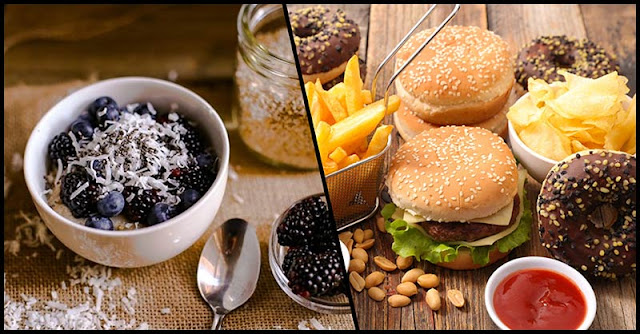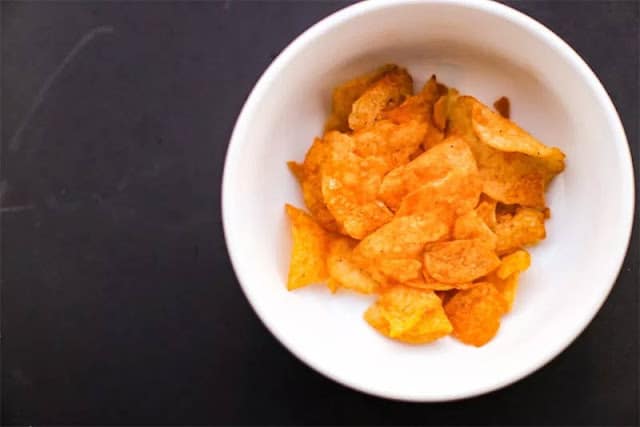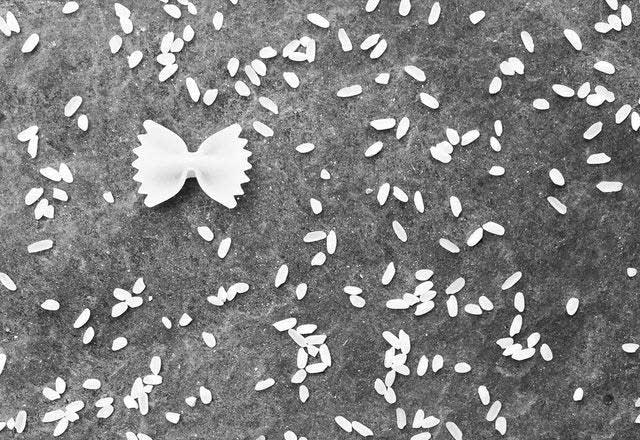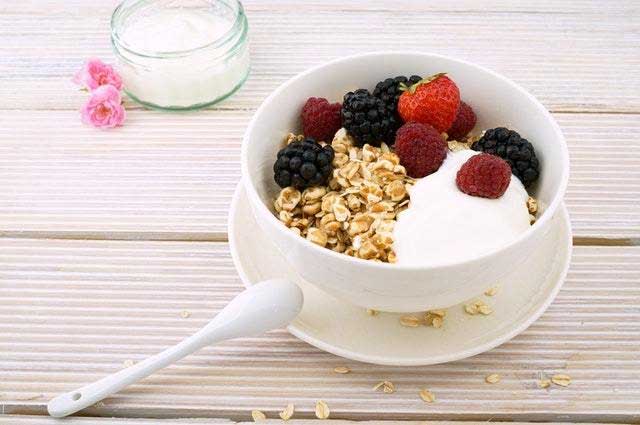Doc, what should I eat? I hear this question every day. Some people pose this question because they are trying to identify how foods can improve or worsen gastrointestinal symptoms. However, in my weight management clinic, people mostly want to know what’s going to help or hurt their weight loss efforts.
The answer to the question is tough because there is no “one size fits all” solution—but the internet is filled with millions of sites claiming they have the answer. Figuring out what to eat for losing weight is more confusing than curling in the winter Olympics (I must be missing something).
via GIPHY
There are all sorts of fasts, ketogenic diets, low-fat diets, low-carb diets, high protein diets, plant-based diets, et cetera. To complicate matters, people claim their diet is the best with religious zeal. President Barack Obama once controversially remarked that “[People] cling to their guns and religion.” I don’t want to get political, but I will say that many people cling to their food (healthy and unhealthy).
Dietary extremists are the foodie versions of religious extremists. You’ve met them. This includes the vegan that will banish you to hell if you sniff a slab of ribs. Or the carbophobe that basically says you’re going to die if you eat one bowl of rice.
I admit that I do have an evidence-based bias towards a plant-based diet, but I’m no dietary zealot. I am going to refrain from jumping head first into today’s diet wars. I merely want to point out foods associated with weight gain or weight loss according to a study in the New England Journal of Medicine.
The study assessed the effects of lifestyle changes including physical activity, television watching, alcohol use, sleep duration, and diet on weight in 120,877 people over 20 years. It also analyzed the impact of foods including fruits/vegetables, whole grains, refined grains, potatoes, potato chips, dairy products, sugar-sweetened beverages, sweets, processed/unprocessed meats, and fried foods on weight. The researchers provided an excellent summary of foods or food categories that affect weight.
Foods Associated with Weight Gain (I’m just the messenger).
Potato chips and French Fries and Baked/ Boiled Potatoes
Potato chips, french fries, and baked potatoes are delicious, but they might be working against you if you are trying to lose weight. In my weight loss clinic, chips are probably the most common snack that people struggle with. If you have a potato chip addiction, read my previous article on how to overcome it.
Processed Meats and Unprocessed Red Meat
In the study, the researchers defined processed meat as bacon, hot dogs, and deli meat. Similarly, the study considered beef, pork, and lamb as examples of unprocessed red meat. If you are a self-proclaimed carnivore, know that the study demonstrated that eating more of these meats may pack on pounds.
Sweets and Desserts
via GIPHY
Sweets and desserts really don’t need any definitions. A ‘sweet tooth’ could put you at risk for gaining weight if you are frequently consuming these high-calorie, sugar-packed dishes. In a perfect world, cookies and ice cream could lead to weight loss. However, the study suggests that in reality sweets are an obstacle to losing weight. Check out my article on sugar addiction.
Refined Grains
Ok, what are refined grains? The researchers labeled the following items as refined grains:
- English muffins
- Bagels
- Rolls
- Muffins
- Biscuits
- Pancakes and waffles
- Pasta
- White rice
- White Bread
If you are trying to lose weight, be careful with your breakfast and side dish choices—refined grains may not be the best options.
Sugar-sweetened beverages, including 100% Fruit Juice
It doesn’t matter if you say soda, pop, or coke—it’s all associated with weight gain. Pop (I’m from the mid-west) is delicious, but the amount sugar in the average can of pop is a risk factor for weight gain. In my weight loss clinic, I’ve never seen a single person intentionally lose weight while drinking significant amounts of pop.
Regarding juice, if sugar addiction is real; juice is a gateway drug. One of the misconceptions I frequently come across is the health benefits of store-bought juice. Most juice you buy in the stores has more sugar and carbs than a can of pop.
Although I’ve never seen people lose much weight while continuing to drink these beverages, I have seen people lose a significant amount of weight with just avoiding juice and pop.
FYI, most ‘sweet teas’ are just as bad. Don’t look at some of the canned teas as a healthier alternative if they contain added sugars.
Fried Foods
via GIPHY
Fried tortilla chips, fried fish, fried chicken—it doesn’t matter what you are frying. Cooking anything in large amounts of oil adds a significant amount of calories.
Who doesn’t love a deep-fried [insert anything except for the abominations people fry at state fairs]? Regardless of how tasty these foods are, the evidence shows that they promote weight gain.
Foods Associated With Weight Loss
Diet soda/pop
Yes, diet pop/soda was associated with weight loss. Full disclaimer, I wouldn’t classify most diet sodas as healthy due to concerns about the overall effects of artificial sweeteners. In the spirit of sticking with the evidence, this study showed that drinking diet pop was associated with weight loss.
In all honesty, I don’t think there is anything special about diet pop that causes weight loss. The reason the researchers found this association is likely due to diet pop consumers drinking less sugar-sweetened beverages.
Vegetables and Fruits
“Thou shalt eat vegetables and fruits” should have been the eleventh commandment. Look, I understand if most people aren’t ready to jump aboard the vegetarian/vegan bandwagon. For me, after reading enough research articles, it’s not even appropriate to call taking on a plant-based lifestyle a bandwagon—the health benefits of eating veggies and fruits are clearly established.
The study highlights the importance of eating veggies and fruits in any weight loss plan.
Nuts
The researchers found that nuts were associated with weight loss. Unfortunately, the study did not mention the types of nuts. If you are eating nuts, try to limit yourself to one serving per day because the nuts can be calorie dense. Be careful with trail mix—M&Ms are still candy, even if they are mixed in with almonds. Also, the honey roasted stuff probably doesn’t count.
Whole Grains
In the study, whole grains included the following:
- Bran.
- Brown rice.
- Cold breakfast cereal.
- Cooked oatmeal and other cooked breakfast cereal (they only included cereals that have 30 grams of whole grains.
- Dark bread.
- Wheat germ.
Whole grains have fiber—fiber helps with weight loss. If you are doing whole grains, make sure you don’t overdo it because they can contain a lot of carbs.
Yogurt
Good Greek yogurt is high in protein and fairly filling. It’s not surprising the researchers found an association with weight loss. Make sure you check the labels, some commercially bought yogurts are jam-packed with sugar.
What’s the Bottom Line?
- Eat more foods associated with weight loss.
- Eat less foods associated with weight gain.
- It’s ok to give yourself treats, but less is more.
- I’m just the messenger showing what the study showed.
Important Notice: This article originally appeared in www.thedocskitchen.com, authored by Dr. Ed McDonald where all credits are due.

















